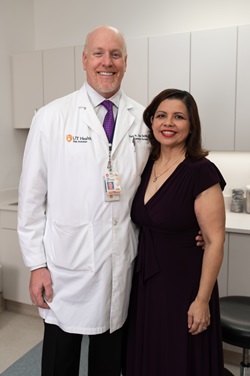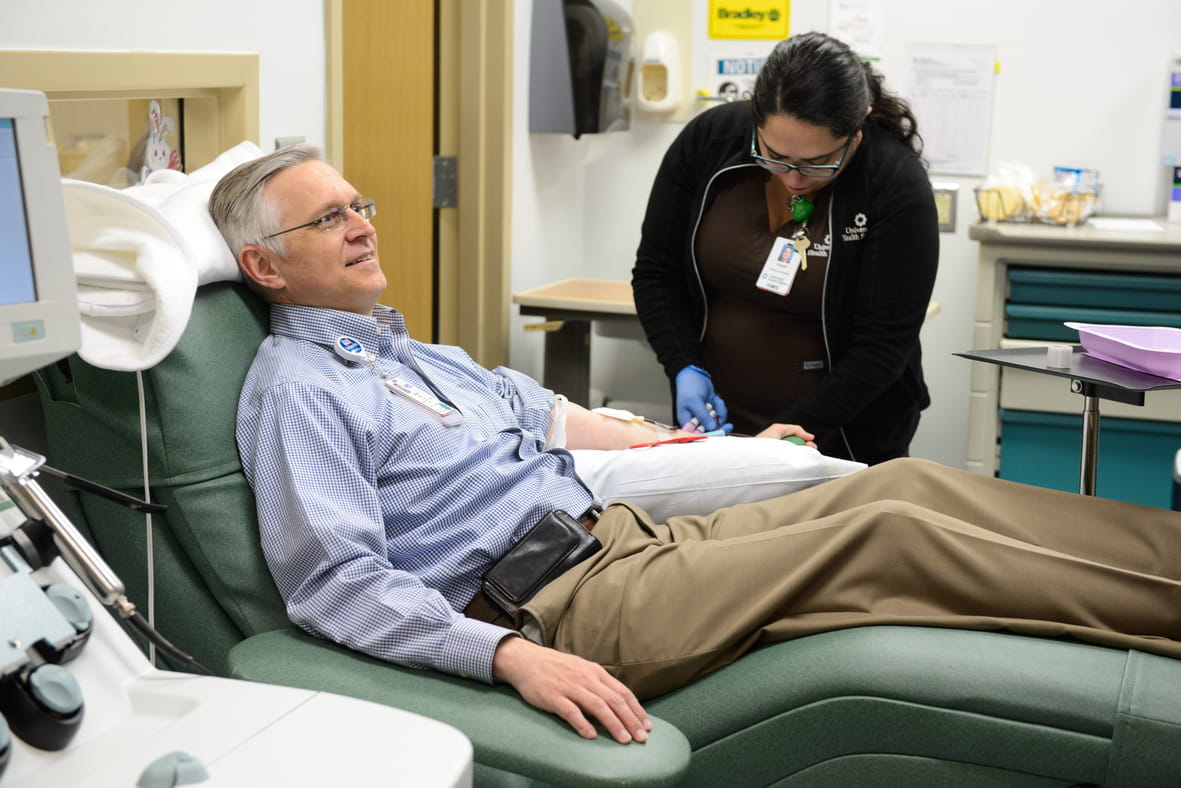For Sandra Diaz the moment of truth came when she was babysitting her 2-year old godson. As he darted toward the fireplace Diaz, 45, tried to get up off the floor and stop him, but couldn’t. “I just could not physically move as fast as he could,” she said.
Her godson didn’t get hurt but the moment crystalized Diaz’s fears. She weighed 255 pounds, was pre-diabetic, had high blood pressure and struggled with physically demanding activities. She’d tried every diet on the books, but always regained the pounds she lost. She didn’t like the future she saw for herself.
“I thought, five years down the road I’m going to be worse off than what I am right now. I'm not going to be able to enjoy my grandkids.” Diaz decided to consider bariatric surgery, a group of procedures that include gastric bypass and gastric sleeve. They enable patients to lose weight by making their stomachs smaller or by altering their intestinal tracks so they absorb fewer calories.
Requirements for bariatric surgery
Diaz contacted Dr. Kent Van Sickle, the medical director for University Health’s bariatric program. He explained the medical criteria that qualifies a patient for weight-loss surgery is based on their body mass index, known as BMI. It takes into account the person’s weight and height.
Patients with a BMI of 40 or greater are considered morbidly obese and eligible for bariatric surgery even if they don’t have other complications. A patient with a BMI of 35 to 40 usually must have at least one major medical condition related to their weight. Conditions include diabetes, high blood pressure, sleep apnea and high cholesterol.
Dr. Van Sickle’s patients attend a seminar where the benefits and risks of weight-loss surgery are discussed, and the pros and cons of different procedures are explained.
“The surgeries are very complicated,” he said. “The most important thing that we try to preach to patients is that we can definitely help you lose weight, if everything goes as planned. But occasionally problems will arise. It's just important to understand what all those potential problems are and that your expectations are not unrealistic.”
Weighing risks of bariatric surgery
The medical risks for gastric surgery patients include:
- Bleeding
- Infection or leaks from the staple lines or connections
- Blockage of your bowels
- Blood clots
- Heart attack
- Vitamin and nutrient deficiencies
- Need for follow-up surgery
The American Society for Metabolic and Bariatric Surgery reports that in 2017, 14% of bariatric patients had additional surgery to repair a problem or because they weren’t getting the anticipated results.
There are also lifestyle changes and emotional risks.
Some patients develop what Dr. Van Sickle calls “buyer’s remorse” because they are no longer able to tolerate foods they used to love. They may get heartburn, acid reflux and can only eat soft foods for a long time following surgery. They may have to take nutritional supplements for the rest of their lives.
“You have to change how you eat, how frequently you eat and the kinds of foods you eat,” he said. Patients are advised to eat five or six small meals daily instead of the usual three squares.
Diaz also had to weather the emotional strain of family members who accused her of taking the easy way out by having surgery instead of sticking to a diet.
According to Dr. Van Sickle, dieting isn’t a realistic solution for many extremely obese patients. “You might lose 10 pounds in six weeks of dieting. If you need to lose 250 it’s just too overwhelming and patients give up,” he said.
Long-term benefits of bariatric surgery

Other significant benefits include:
- The likely loss of up to 77% of excess weight within a year of surgery
- Obesity-related conditions like diabetes and hypertension improve or disappear
- A patient’s quality of life improves dramatically
Diaz says she’s now enjoying better health and activities that used to be off limits.
She no longer takes medication for high blood pressure, her blood sugar is normal and she exercises at a gym three to four times a week. A year after surgery she’s lost more than 100 pounds. Instead of buying size 20 jeans, she now fits into a size 10.
“My self-esteem has gone up. I love the way I feel physically, emotionally and it just enhances your life so much better.” Her only regret: “I should have had weight-loss surgery sooner,” she said.




